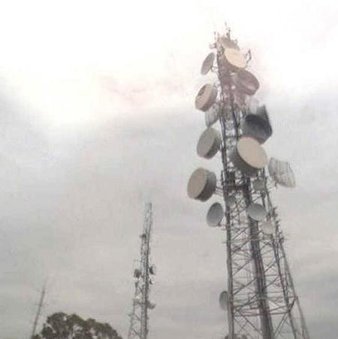I'm a licensed Aircraft Mechanic & Inspector with twenty five-plus years in the field. I've had a varied career so far, with time spent in the sheetmetal, mechanic, and inspection specialties. Most of my time is on heavy Boeing and McDonnell Douglas aircraft, of the passenger, cargo, and experimental type. This career isn't for everyone, but I enjoy it.
Please do NOT ask me to troubleshoot problems with your airplane, that is not what this Q&A is for.
That sounds like a question for Adam and Jamie over at Mythbusters!
I don't really know.
After the initial air pressure equaliziation, which could be quite turbulent I suppose; you'd still have the air rushing along outside the open hatch. That would create some suction, courtesy of Bernouli's principle.
I guess as long as you stayed away from it, and were belted in, it might be all right.
A more immediate concern would be bringing the aircraft down to an altitude that had enough oxygen for humans to live.
And further: Opening an emergency hatch would be a Herculian effort for sure. All the emergency exits I've seen, are plug type hatches. Which means that whomever 'ripped' it out; would be fighting against the higher air pressure of the inside of the airplane, versus the outside air.
Those few psi don't sound like much, but it adds up to a lot of force holding that plug type hatch in place, even without a latch holding it.
Strictly speaking; I don't know. If you look in the maintenance manual for any given aircraft, you will find limits for dents. Depth, width, etc. These would be dents that do not have any structural damage of any other kind associated with them.
So, if you took a hammer and dented the airplane 'slightly' it may or may not be airworthy.
Would it fly? Probably; because it would take a terrific amount of surface deformation to ruin the aerodynamics completely.
But technically airworthy, is another matter.
Well Sir, that is a two issue question.
First you have to get a US work visa, if you aren't a US citizen. I can't advise you as to how to get one of those.
The second part, working on aircraft in the US with a foreign license, I can add a little insight. But, you'd be best to actually talk to someone who has done it.
Firstly, understand that your license is not recognized by the FAA. So you don't have the authority to sign off any aircraft related work.
Basically, if you were able to get a job lined up in the USA, it would be basically as a mechanic's helper. With the pay lower than a licensed mechanic's. You can use the time working, as well as your existing license, to get permission to take the Airframe and Powerplant examinations, so that you can get your FAA licenses. You would just have to speak to an FAA inspector about that. Usually arrangements can be made to get you signed off to take the tests.
Expect to pay between $1000 and $2000 US, minimum to get your licenses. It will cost even more if you go to one of those 'guaranteed' places.
If you happen to have a specialty, such as sheetmetal work, or avionics; these areas can lean less on their license when it comes to larger Repair Stations. You still can't sign off the work usually, but your experience will be valued if you produce good results.
It's not an easy proposition for sure. You'd almost be better off staying where you are, where your existing license makes you worth more in pay; and put out the money to get your US FAA licenses before you try to come over and work in the US.
If I were planning a move to another country, to work on aircraft, that's what I would do.
I usually check places like J.S. Firm to see what jobs are out there. They usually have job requirements listed with each job. I'm sure there are some out there that don't absolutely require you to be US licensed.
Well, I can tell you what we do at my current company.
If it's reported that the airplane has sustained a lightning strike, or when someone finds lightning burns on the aircraft; a lightning check is made to find the extent of any damage. We do this in accordance with the appropriate aircraft maintenance manual.
In general, a lightning strike check has three parts:
1- Examine the external surfaces for lightning strike
2- Examinine the internal components for lightning strike
3- Inspection and operational check of the radio and navigation systems
It's actually quite an extensive process.
I've found some interesting looking burns on airplanes sometimes. Often looking like arc spot welds on the aluminum skin, or burn marks with delamination on the composite structure.
It's all fairly safe though. The planes are bonded and structure ground strapped together so that electricity will flow through the structure and back out at some point.
So usually when an airplane gets hit by lighting, there will be a point of contact mark, as well as an exit mark where the electricity came back out.
Radio program/music director
 What's the secret to actually getting through when you call in for a radio contest?
What's the secret to actually getting through when you call in for a radio contest?
Swim Instructor
3D Games Developer/Programmer
 How does 3D fool the human brain into seeing an extra dimension?
How does 3D fool the human brain into seeing an extra dimension?
I have never had that situation, or heard of a mechanic having to do that.
Flight crews do occasionally confer with their company's maintenance control dept in flight about things. But this wouldn't involve the tower.
As a mechanic, I have no authority to tell the flight crew to do anything in flight. Once I release the aircraft for flight as "Airworthy", the aircraft is the Captain's.
Tower aircraft controllers, or an FAA person would have authority to order a plane to divert.
The short answer is: Just as much, or as little, as any other profession.
Legally speaking, there is a paragraph in the FAA regulations that address this, in Part 65:
"Within the United States, each certificate holder (or person performing maintenance or preventative maintenance functions for it) shall relieve each person performing maintenance or preventative maintenance from duty for a period of at least 24 consecutive hours during any seven consecutive days, or the equivalent thereof within aany one calendar month."
Essentially, that means that we have to have four days off per month.
And that rule, is what makes possible schedules that I've had in the past; such as when I as a ride on mechanic, working 20 days on ten days off.
Currently, I have the super normal situation of having two days off per week usually, with two weeks of paid vacation, and some sick days, every year. That's being a full time company employee, of course.
At a different company, a few years back, I had the above schedule usually, plus the benefit of an additional week of time off; designated for use during the week of Christmas thru New Years; which was the 'plant shutdown' period at the Canadian plant headquarters of our company. Now that was nice!
But I've also had the 'horror story' schedules occasionally also. Where we would be working twelve hours a day, seven days a week; until we bumped into that mandatory four days off mentioned above.
So, it really varies company to company, and depending on your workload, and the urgency of it. Just like any other job.
Hope I helped.
Done and done. :)
-OR-
 Login with Facebook
Login with Facebook (max 20 characters - letters, numbers, and underscores only. Note that your username is private, and you have the option to choose an alias when asking questions or hosting a Q&A.)
(A valid e-mail address is required. Your e-mail will not be shared with anyone.)
(min 5 characters)
By checking this box, you acknowledge that you have read and agree to Jobstr.com’s Terms and Privacy Policy.
-OR-
 Register with Facebook
Register with Facebook(Don't worry: you'll be able to choose an alias when asking questions or hosting a Q&A.)